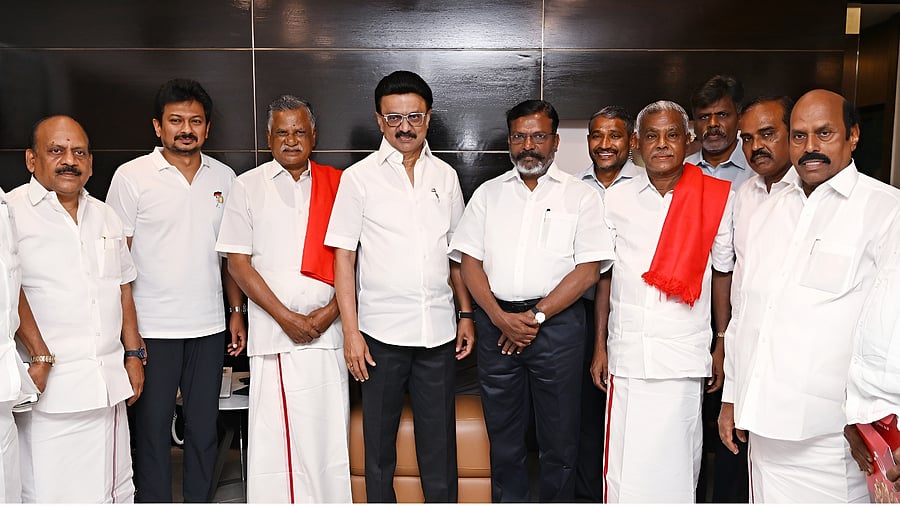
P Shanmugam and R Mutharasan – state secretaries of CPI (M) and CPI respectively – and VCK chief Thol Thirumavalavan met Chief Minister M K Stalin on Wednesday.
Credit: X/@tncpim
Chennai: Allies of the ruling DMK – CPI (M), CPI, and VCK – on Wednesday demanded that the Tamil Nadu government enact a special law to prevent caste-based honour killings and to provide protection for couples who marry outside their caste and religion.
The move comes amid speculation that the state cabinet, during its scheduled meeting on August 14, might discuss the issue in the wake of the brutal murder of a 27-year-old Dalit IT graduate by the brother of his girlfriend from the dominant Thevar community.
P Shanmugam and R Mutharasan – state secretaries of CPI (M) and CPI respectively – and VCK chief Thol Thirumavalavan met Chief Minister M K Stalin on Wednesday and submitted a detailed memorandum. The leaders also enquired Stalin about his health – he was admitted in a private hospital for seven days after he complained of dizziness during his morning walk.
Kavin’s suspected honour killing by S Subashini’s brother, S Surjith, has sparked public debate in Tamil Nadu, with activists highlighting a rise in such incidents. Though Stalin spoke to Kavin’s family a week after his brutal murder, he has not issued any public statement on the issue of honour killings with criticism mounting that the DMK wants to appease Mukulathors, a dominant caste to which Surjith and Subhashini belong.
The leaders told Stalin that inter-caste couples face severe attacks and stressed that existing criminal laws were not enough to protect people from such violence. “The memorandum sought a special bill to prevent crimes committed in the name of honour,” sources in the know told DH.
They wanted a special law to protect inter-caste and inter-religious couples besides creating awareness on the same. Sources in the government told DH that the top brass was seized of the matter and discussions on the topic had started.
“We can expect something in the next one week. Generally, the government will appoint a committee and seek opinion before enacting a law on sensitive matters. We have to wait and see the approach to be taken. But certainly, there will be some movement on the issue,” the source added.